Providing Knowledgeable and Strategic Guidance
Adoptions
A Road Map to Future Families in the United States to Adopt.
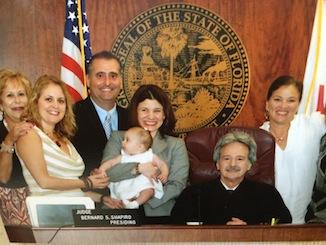
As a Marital and Family Law Attorney who has been practicing in the State of Florida for the last 35 years, there is a new trend in the Adoption Laws and cost as it relates to the General Public.
In the past the cost of adoption was only economically affordable for extremely wealthy clients and people. People could spend upwards of $50,000.00 to $100,000.00 by the conclusion of the process and in some instances this money could be completely lost.
In order to understand adoption, it is first necessary to determine and understand the different ways that a couple or a person can adopt a child.
The easiest and simplest way to adopt a child is called a step parent adoption. In order to adopt your step child you will need the consent of your spouse and the consent of the biological parent. If the biological parent is absent or unknown, then it is necessary to conduct a diligent search and inquiry to find the natural parent and to file a notice of publication in a legal publication, putting the parent on notice of the intention to adopt your step child.
Following the publication period, the Default is submitted to the Court and the matter is set for Final Hearing on the adoption and a Final Judgment of Adoption is entered. The consent of the child is necessary if the child is an older child and court typically requires the child to be present at the Final Hearing following the adoption, the child’s birth certificate is Amended to reflect the name of the adoptive parent and a new last name if the child is being adopted by Step Father.
Adult adoptions are also not lengthy or costly, because the consent of an adult’s parents is not required in order an individual to be adopted. Notice to the last known address of the Natural Parent is sufficient for this type of adoption to proceed to Final Hearing. The consent of the person who is to be adopted is required in this process and once again the Final Judgment allows for the name of the individual to be changed to the last name of the person who is adopting.
Relatives may adopt their relatives in the event that either their parents of the Minor Child are deceased or alternatively the Natural Parent’s consent to an adoption by their relatives. Depending upon whether the relatives are close or distant would determine whether or not a home study is required to complete this type of adoption. A Home Study is usually prepared by a licensed clinic social worker, if one is needed, depending on the type of relative.
Adopting a child from Foster Care is also possible, if the adoptive parents have had the child or children in their care and the parental rights of the Natural Parents are terminated. There are no guarantees that a child placed in the care of the Foster Care parent will ultimately be adopted, because the parents will be given the opportunity to be reunified with their child or children if they are given a case plan, with services to be performed.
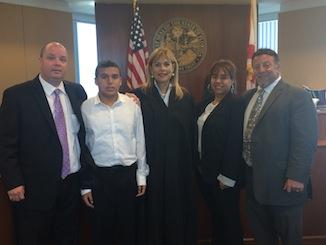
A Termination of Parental Rights is a lengthy process and children can remain in foster care for several years. A Consent from the Department of Children and Families is required in order for a child or children to be adopted after their placement in State custody following allegations of child neglect, child abuse or abandonment. There is a procedure to follow in order to become a Licensed Foster Care parent.
Many people believe that international adoption is extremely positive and allows for American citizens to adopt unwanted orphans from many different nations. International adoptions require multiple different steps in the United States as well as in the foreign country. With international adoptions there is no issue of terminating the parental rights of the parents, because only orphans can be adopted internationally. The definition of an orphan is different from one country to another.
For international adoption to be successful it is first necessary to determine the country of origin from which the child is to be adopted. The State Department of the United States keeps accurate records which reflect the number of children who in the past were adopted by Country in any given year.
Each country also has its own requirements to who can adopt from their country, some have restrictions on age and marital status and it is important to know these requirements when the process of adoption is commenced, it is also important to determine whether a Country is open to adoptions from Americans.
These countries require that potential adoptive parents spend a period of time in their country to learn about the culture, and people and to see the interaction between the child sought to be adopted and the adoptive parents.
An international adoption also requires the filing of documents with Immigration and Naturalization Services of the United States for approval in order to adopt a foreign born child. A background check and finger-printing are required along with a home study in order for the Department of State to approve of an application to adopt a foreign born child.
International adoptions run into various problems and issues that clients should be aware of prior to making a choice. Many of the Governments of foreign nations are unstable and could change during the adoption process. Additionally, the foreign nations can change their policies on allowing children to be adopted by American citizens; this recently happened in Russia as an example. Quotas may be set on the number of children who are allowed to be adopted from different countries, and countries can decide that Children should not be adopted by American Citizens.
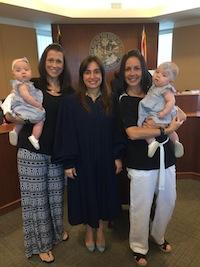
Certain countries close their court systems during parts of the year for several months and this can lead to unnecessary delays in finalizing an adoption.
From the application process on the American side, it is a lengthy and complicated process to get approved by our government, but not impossible. Certain things will automatically result in disqualification, such as a criminal record with convictions.
Following the finalization of adoption in the foreign country and approval by the United States, the Child is brought to this country. The Foreign Judgment of adoption is then Domesticated and becomes a Final Judgment of adoption in this country.
A Domestic or Intermediary Adoption is an adoption where a biological mother decides during her pregnancy that she does not wish or cannot raise the child and desires the child to be adopted.
Parents who wish to adopt a new born baby, can enter into an Intermediary Agreement to adopt a child at the time of his/her birth. A contract must be written, that the adoptive parents will be the parents of this child at the time of the birth and the biological mother and her husband/father agree to surrender their parental rights.
During the pregnancy an Intermediary Contract is entered into. The adoptive parents may be required to pay reasonable living expenses for the biological mother during the pregnancy and these costs are filed with the Court as part of the process. Additionally, medical expenses and post birth expenses may be paid depending on the circumstances, and whether or not the birth Mother has health insurance or Medicaid.
Domestic Adoptions/Intermediary Adoptions can be high risk. The birth mother has the ability to change her mind following the birth of her child. Additionally, issues concerning who the natural father is can be tricky as well. If the biological mother changes her mind after the birth of the child, then it will be virtually impossible to recover the money paid throughout the pregnancy; it is possible to insure the adoption process but this is also costly.
Once a child is born and placed with the adoptive parents, they will need a pre- and post-placement home study and schedule a Final Hearing after the Parental rights of the biological parents are terminated. The matter will proceed to Final Hearing thirty days later and the child and parents are present. A Final Judgment of Adoption is entered and a new Birth Certificate which names the Adoptive Parents as the Child’s Natural Parents.
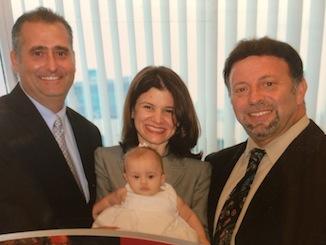
With advances in science and technology, anyone can adopt a child that carries some or all of their genes. Assisted Reproductive Technology is a term which involves different forms of artificial insemination and is a common treatment for couples with infertility issues.
In Vitro fertilization is used by couples who have trouble getting pregnant without intervention. Surrogates are used to carry embryos for couples or single parents and egg and sperm donors are becoming more common. The procedure involves the female partner taking medication to stimulate her ovaries to produce more eggs than usual. These eggs are then harvested surgically once they have been ripened. The male parent then produces sperm and they are combined in a lab. The embryos are grown in a lab and one or two are transferred into the females’ uterus. The remaining embryos can be cryogenically frozen and saved for future use or donation.
Embryo donation and adoption occurs when the frozen embryos of a couple that are left over from In-Vitro fertilization can be used to implant in another female for purposes of adoption.
The donating couple and adopting couple must reach an agreement and the frozen embryos become the property of the adopting couple. These procedures can be done openly when using an embryo donation or embryo Adoption Organization. The donating couple are matched to the Adopting Couple and a Contract is prepared for the transfer and implantation of the embryo. The identity of the parties are kept private when a fertility clinic is used.
Most of the organizations that conduct open embryo donations and adoption have requirements for those seeking to adopt an embryo. These requirements include age, marital status, and exclusion of same-sex couples.
These restrictions do not exist with fertility clinics, which store frozen embryos and the couples that donate are kept confidential. Embryo donation and Embryo Adoptions do not typically approve of single parent adoptions or same sex adoptions. Your Attorney should be able to direct you in the right direction depending upon whether you are a married heterosexual couple, same sex partner or a single parent.
Second parent adoptions are new to the state of Florida, within the last three years, the courts have determined that the Florida Law precluding same-sex adoptions was unconstitutional and violates the Equal Protection Clause of the Florida Constitution as well as the Constitution of the United States.
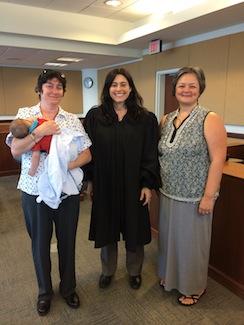
Based upon the recent decisions of the United States Supreme Court that the Defense of Marriage Act violates Equal Protection Clause of the United States and the recent trend of numerous states granting same sex marriage it is likely that more and more same sex couples will wish to adopt and have families.
In addition, to same sex couples, single parents either male or female are not precluded from adopting children. It is likely that in the future less people will decide not to get married for the sole purpose of having children and a family, if adoption will allow both single women and single men to have single parent families in the future. More and more states are finding the prohibition against same-sex marriages as unconstitutional. This creates a more likely scenario which would allow same sex partners to adopt and have families.
The Equal Protection Clause of the United States Constitution should allow all married couples as well as single individuals to adopt and raise families. The means of adoptions are unique based upon any given set of facts and who is seeking to adopt.
The advances in assisted reproductive technologies such as In Vitro fertilization, embryo donation and adoption and sperm and egg donation, make it possible for anyone to adopt now and in the future.
A single woman for example, can become pregnant by the use of a sperm donor who can either be anonymous or known to the single woman. If she cannot carry a child a surrogate can be used and her egg and the donors’ sperm can be used to create an embryo which would be carried by a surrogate. In this case, the single woman would need the assistance of an attorney to draft specific contracts with the sperm donor and the surrogate, if necessary.
With a single man it is necessary to have an egg donor involved, along with a surrogate to carry the child. He can contribute his sperm or alternatively he could use embryo donation and adoption as an alternative.
With same sex partners, choices have to be made as to what each partner is contributing. In the case of two women, one can provide her egg and have the other partner carry her egg. A sperm donor would be necessary to create an embryo for implantation. The partners should execute an agreement that they will both be parents and they intend to raise the baby together.
A sperm donor contract is required to prevent any future claims by the sperm donor.
With two men, an egg donor would be necessary and the sperm used by one or both partners to create an embryo. A surrogate is required to carry the embryo. Once again, embryo donation or adoption could be used in this process.
Conclusion
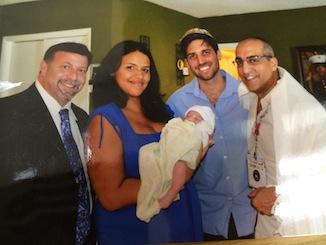
As a marital and family law attorney who has handled all types of adoption, I am equipped to assist anyone in the adoptions process. As a married man with a wife and three children, I understand the importance of having a family. Based upon advanced in technology, many of the risks and pitfalls associated with international adoptions and domestic adoptions can be avoided. Additionally, single parents, same sex parents, and heterosexual parents, can all adopt children through assisted reproductive technologies.
Based upon my experience and connections I can help create a road map to adoption for anyone interested in my services. The costs would be substantially less than an international adoption, or a domestic or intermediary adoption, and the risks associated with these types of adoptions.
In the event you are seeking any type of adoption services, please call Kenneth M. Kaplan Esquire at 954-260-5479. We can discuss all possibilities and help you to adopt a child.





